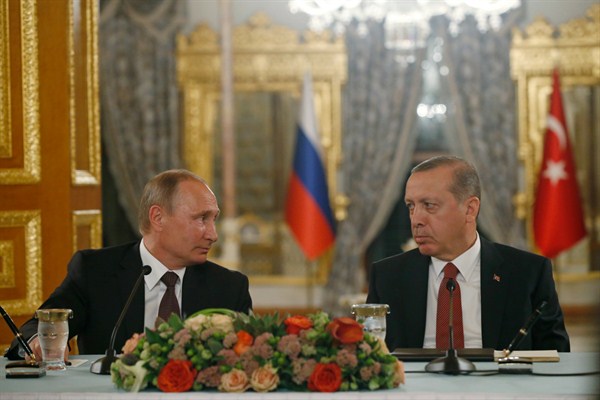In Istanbul last month, Turkey and Russia signed a strategic agreement for a stalled gas pipeline known as Turkish Stream. Running under the Black Sea to Turkey and then on to Greece, the pipeline would offer Russia a way to sell gas to Europe that bypasses existing pipelines in Eastern Europe, especially Ukraine. The Turkish Stream agreement seems like the culmination of a Turkish-Russian rapprochement that has been underway since the spring, as both countries tried to repair relations after Turkey downed a Russian fighter along the Syrian border nearly a year ago.
First proposed by Russian President Vladimir Putin in late 2014 during a visit to Ankara, Turkish Stream was billed as a replacement for the abandoned South Stream project, which would have carried Russian gas under the Black Sea to Bulgaria but didn’t comply with EU energy rules. For Moscow, the main rationale for both South Stream and Turkish Stream was the search for a gas transit alternative to Ukraine.
The European Union, meanwhile, has been pursuing its own energy strategy to move away from dependence on Russian gas and negotiate lower prices with Russian gas giant Gazprom. In 2008, the European Commission proposed the Southern Gas Corridor, to supply gas from huge fields in the Caspian Sea—and perhaps eventually Iran and other Middle Eastern sources—to Europe through several new pipelines.

